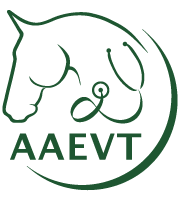By Meg M. Green, DVM
Have you ever heard someone say, “Wow she’s brimming with confidence!”?
 According to Webster’s dictionary the definition of the word confidence is as follows, “A feeling of self-assurance arising from one’s appreciation of one’s own abilities or qualities.” Nothing will create authentic confidence like actually doing “it” – where “it” is the process or activity. For example, I’m confident in things like performing a gastroscopy in a horse, speaking or coaching because I have been doing those things for years. I have confidence in my abilities to not only get the job done, but I can do it well.
According to Webster’s dictionary the definition of the word confidence is as follows, “A feeling of self-assurance arising from one’s appreciation of one’s own abilities or qualities.” Nothing will create authentic confidence like actually doing “it” – where “it” is the process or activity. For example, I’m confident in things like performing a gastroscopy in a horse, speaking or coaching because I have been doing those things for years. I have confidence in my abilities to not only get the job done, but I can do it well.
In contrast, when I first graduated veterinary school and became a practicing veterinarian, I lacked the confidence in my skill set and often questioned if what I was observing in my patient was normal or abnormal. Why? Because I didn’t have the experience. However, I can tell you that the lack of experience should not deter your efforts. In fact, it’s important to remember everyone has been a beginner at some point in their life, and when you are starting something new give yourself some grace before casting judgement.
If you are lacking confidence below is a list of action steps that you can take to help you learn anything faster and more efficiently:
- Immerse Yourself in the Learning Process – if you are going to learn something, you need to immerse yourself in the learning process. If you are taking lessons, reading a book, watching an on-line course – it is best to isolate yourself and focus only on that task and limit your distractions i.e. e-mail, phone notifications, television etc.
- Learn in Short Bursts – the best way to study (and preserve your attention) is to focus your efforts in short bursts, as in 20-30 minute chunks of time. Any longer than that, and your attention will start to dwindle. Try to schedule your learning sessions in these short blocks, rather than marathon sessions
- Take Notes – for multiple reasons, research has shown writing things down teaches our brain that this particular information is worth remembering. It leads to greater memorization, the same way that visualizing the performance of a new skill can actually improve your skill level.
- Focus on the Fundamentals – when learning something new it’s helpful to ignore the fluff and focus purely on the important elements of your subject
- Talk to someone who’s already learned it – seek out and talk to people who have already learned what you’re learning; ask them for advice because they will likely be more than willing to give you shortcuts and tips to save you time and money
It is important to remember that confidence is not only given to certain types of people. It doesn’t matter what personality type you are, introvert or extrovert. Just like my Dad often used say to me, “Education is theory, but experience is real life application” Thus, by taking action, over time you will be able to master your skillset and learn the true meaning of authentic confidence.
We are excited to be having Dr. Green speak with us at our NEAEP meeting in September 2020.
Learn more about Dr. Green HERE
